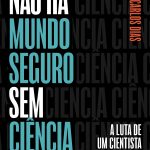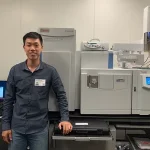Waste Valorization with Electrochemistry and Mechanochemistry: Towards Sustainable Co-production of Hydrogen and Value-added Chemicals
Palestrante: Dra. Hui Luo (School of Mechanical Engineering Sciences -University of Surrey – United Kingdom)
Abstract: In the transition towards Net-Zero, there is significant interest in phasing out fossil fuels as both the energy source and precursor for petrochemicals. Biomass is recognised as an ideal CO2 neutral, abundant and renewable resource substitute to fossil fuels. The rich proton content in most biomass derived materials endows it to be an effective hydrogen carrier. The inherent chemical structure allows them to be easily catalysed to produce valuable commodity chemicals that can be used in applications such as biodegradable polymers and pharmaceuticals. Although historically biomass has been regarded as waste stream, recent years have seen increasing attentions in valorising it into useful products. In this talk, I present biomass electrolysis, specifically glycerol (the waste by-product from bio-diesel industry), as an alternative route to produce hydrogen and value-added chemicals. The process resembles water electrolysis, with H2 produced on the cathode via hydrogen evolution reaction. On the anode, however, instead of oxidising water, partial oxidation of glycerol taking place, with a much lower thermodynamic requirement that can cut the electricity input by half. Here I present the fundamental knowledge on the general reaction mechanisms, acquired through advanced material characterisations and DFT calculation. At the same time, details on catalyst requirements and recent advances for future strategic design of the processing system will be provided. Looking beyond, beside utilising biomass, an even higher urgency lies in recycling the accumulating plastic waste into useful products. Mechanochemistry has emerged as a safe, efficient and green technique. Using just mechanical energy, this process can cleave chemical bonds and depolymerise long-chain molecules such as cellulose and plastics, revealing huge potential in industrial applications. By transforming a liquid process into a solid-state reaction, this technique can also significantly reduce solvent consumption. Therefore, this talk will also cover the recent advances in mechanochemical catalysis for plastic recycling, and present the possibility in coupling mechanochemistry with electrochemistry for valorising waste into green hydrogen and value-added chemicals.
Short Bio: Dra. Hui Luo is an independent academic fellow in the School of Mechanical Engineering Sciences at the University of Surrey, UK. She obtained her PhD in Queen Mary University of London in 2019, working on carbon materials for solar hydrogen conversion. In Oct 2019 she moved to Imperial College London working as a research associate, developing biomass electrolyser for green hydrogen and bio-chemical co-production. In Sep 2022 she worked as a senior test engineering at Ceres, before taking the Surrey Future Fellowship and join Surrey in May 2023. Her research interests include developing and up-scaling efficient electrolysis technologies to convert biomass and plastic wastes into green hydrogen and high-value commodity chemicals, as well as designing catalytic mechanochemical recycling processes to upcycle end-of-life plastics.





